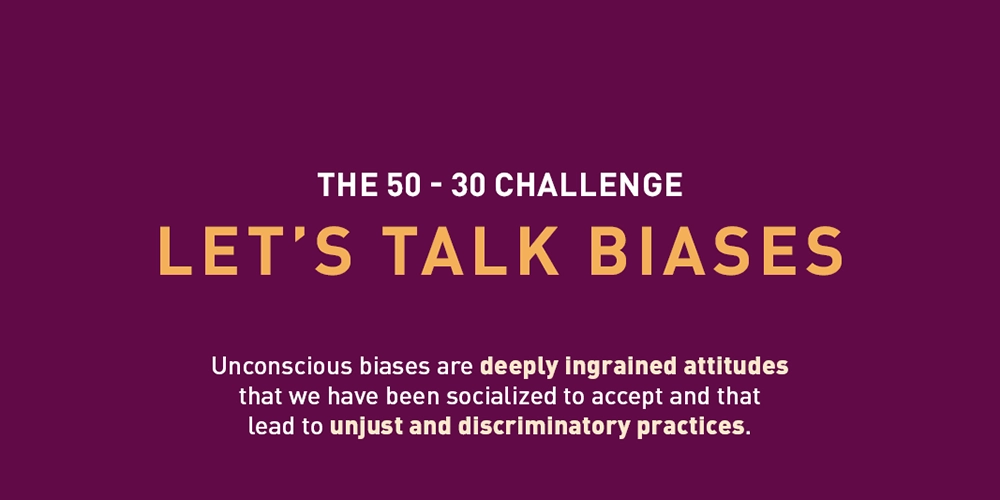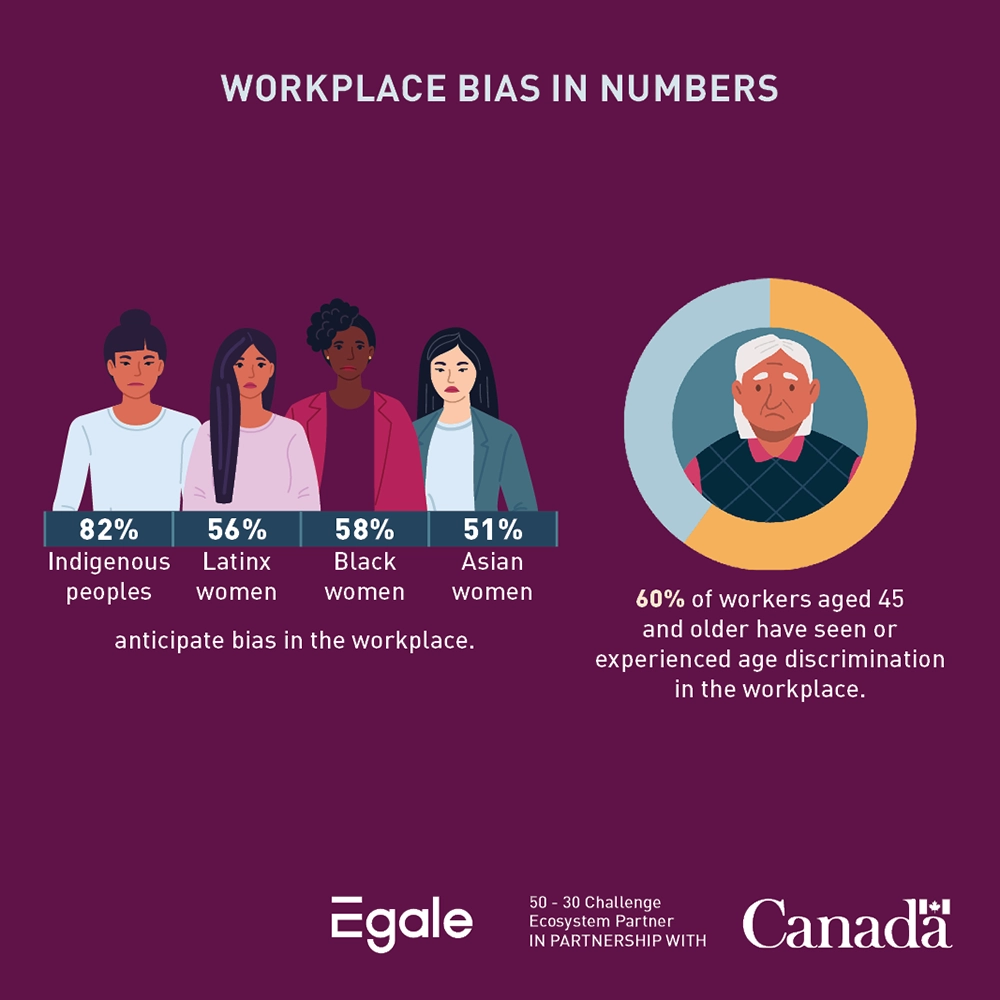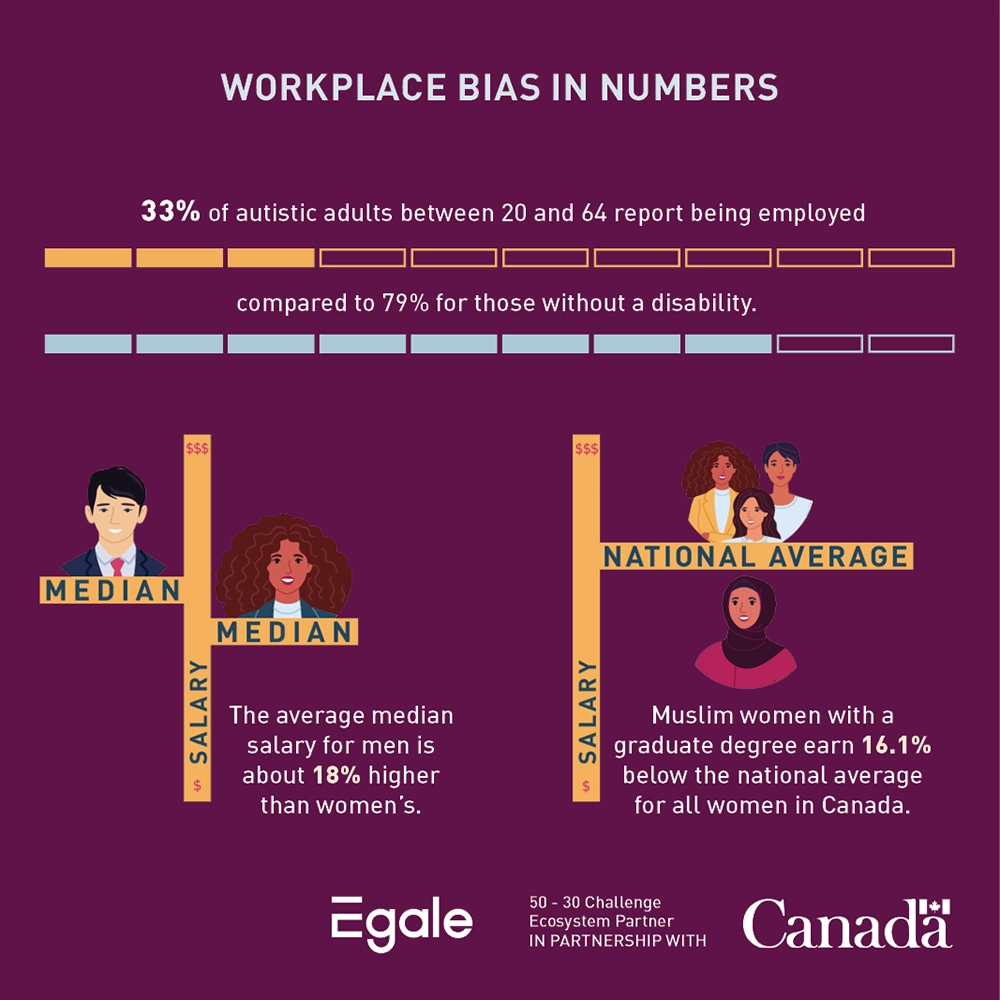
Overcoming Challenges for Inclusive Workspaces
Unconscious bias refers to the deep-seated stereotypes and prejudices that individuals hold about others, often without realizing it. These biases can impact decision-making processes, workplace dynamics, and overall organizational culture. In the Canadian context, addressing unconscious bias in the workplace has become a significant challenge for fostering inclusive work environments. This article explores the implications of unconscious bias in the Canadian workplace and examines strategies to mitigate its effects to create a more diverse and equitable workforce.
Understanding Unconscious Bias
Unconscious bias is a natural cognitive process rooted in the human brain’s need to categorize and process vast amounts of information quickly. Various factors shape these biases, including cultural norms, media portrayals, personal experiences, and socialization. In the workplace, unconscious bias can manifest in various forms, such as racial, gender, age, and disability biases. These biases often result in unfair treatment, microaggressions, and limited opportunities for certain groups, hindering diversity and hindering employee growth and engagement.
The Impact on Workplace Diversity
Canada is a diverse nation, home to individuals from various cultural, ethnic, and socioeconomic backgrounds. Embracing diversity in the workplace has been proven to lead to enhanced creativity, innovation, and problem-solving. However, unconscious bias acts as a significant barrier to achieving true workplace diversity and inclusivity.
Unconscious bias can lead to hiring decisions that favor candidates who fit certain stereotypes or have similar backgrounds to those making the hiring choices. As a result, qualified candidates from underrepresented groups may be overlooked, perpetuating a lack of diversity within organizations. Additionally, unconscious bias can affect promotion decisions, salary negotiations, and performance evaluations, leading to an uneven distribution of opportunities and rewards among employees.

Recognizing and Addressing Unconscious Bias
The first step toward addressing unconscious bias effectively is recognizing it. Employers can implement bias training programs and workshops for all employees to raise awareness about unconscious biases and their impact on decision-making processes. These sessions should encourage open discussions about biases and their implications, fostering an environment where employees feel comfortable sharing their experiences and perspectives.
Diverse Hiring Practices
To foster diversity and inclusion, employers should adopt diverse hiring practices. This includes establishing diverse interview panels, using structured interview techniques to reduce bias, and setting specific diversity goals for recruitment. Transparent hiring policies can help ensure that candidates are selected based on their qualifications and potential, rather than unconscious biases.
Inclusive Organizational Culture
Creating an inclusive organizational culture is essential for addressing unconscious bias. Employers should prioritize diversity and inclusivity in their core values and mission statement. This commitment should be reflected in all aspects of the workplace, from recruitment and promotion to team dynamics and decision-making processes.

Promoting Diversity in Leadership
Having diverse leadership teams can positively influence workplace dynamics and decision-making. Companies should actively work toward promoting employees from underrepresented groups to leadership positions, creating role models for other employees and fostering a more inclusive work environment.
Ongoing Evaluation and Improvement
To ensure continuous progress, organizations must regularly evaluate their diversity and inclusion efforts. This can be done through surveys, focus groups, and feedback sessions to gauge employee experiences and identify areas for improvement. Moreover, creating a comprehensive policy that addresses the organization’s inclusion and diversity needs is crucial. This policy should outline the company’s commitment to promoting diversity, equity, and inclusion, and provide a clear roadmap for implementing initiatives and practices that foster a more inclusive workplace for all employees.
Register for Egale’s benchmarking survey with Diversio
If your organization is registered to participate in the 50 – 30 Challenge, please register for our benchmarking survey with Diversio. If your organization isn’t yet registered as a 50 – 30 Challenge participant, sign up today.
Conclusion
Unconscious bias in the Canadian workplace poses a significant challenge to creating diverse and inclusive work environments. By recognizing and addressing these biases through training, diverse hiring practices, inclusive organizational cultures, promoting diversity in leadership, and ongoing evaluation, employers can take concrete steps to mitigate the impact of unconscious bias. Embracing diversity and fostering an inclusive workplace culture will not only benefit employees but also enhance productivity, innovation, and success in the Canadian workforce.
Download the 50-30 Challenge Let’s Talk Biases Infographic
Other 50-30 Challenge Resources
Recruit
Unlock the power of equity, diversity, inclusion, and accessibility in your organization with our comprehensive learning content designed to guide you through attracting an
Retain
Retaining and nurturing diverse talent is key to organizational success. Dive into our tailored learning content that equips you with the tools and insights to create an inclusive workplace culture, fostering employee growth, satisfaction, and long-term commitment.
Include
Foster the growth and development of diverse talent within your organization through our curated learning content. Explore inclusive practices, mentorship programs, and strategies that empower individuals to thrive and contribute their unique perspectives, fueling innovation and driving collective success.